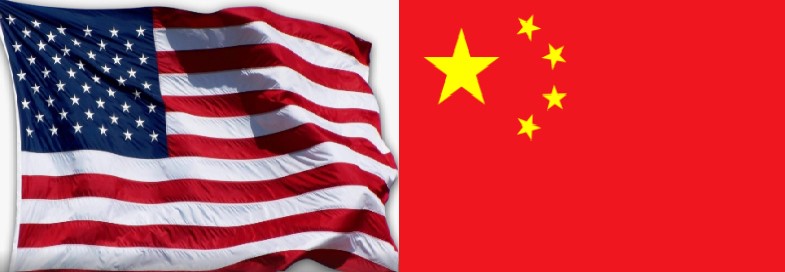
(Photo : BT Creative)
- The U.S. government has ordered Taiwan Semiconductor Manufacturing Co (TSMC) to halt shipments of advanced chips to Chinese customers.
- The Department of Commerce imposed export restrictions on certain sophisticated chips, specifically those of 7 nanometer or more advanced designs, destined for China.
- This U.S. order comes after TSMC notified the Commerce Department that one of its chips had been found in a Huawei AI processor.
- The U.S.'s decision to halt the export of advanced chips to China is a significant development in the global tech industry, reflecting ongoing tensions between the U.S. and China in the tech sector.
In a significant move that has sent ripples across the global tech industry, the U.S. government has ordered Taiwan Semiconductor Manufacturing Co (TSMC) to halt shipments of advanced chips to Chinese customers. These chips are often used in artificial intelligence applications, and the decision to halt their export is expected to have far-reaching implications.
The Department of Commerce sent a letter to TSMC imposing export restrictions on certain sophisticated chips, specifically those of 7 nanometer or more advanced designs, destined for China. These chips power AI accelerator and graphics processing units (GPU), and their export restriction is expected to significantly impact the Chinese tech industry.
This U.S. order comes just weeks after TSMC notified the Commerce Department that one of its chips had been found in a Huawei AI processor. Tech research firm Tech Insights had taken apart the product, revealing the TSMC chip and apparent violation of export controls.
Impact on Huawei and Other Chinese Companies
Huawei, at the center of the U.S. action, is on a restricted trade list, which requires suppliers to obtain licenses to ship any goods or technology to the company. Any license that could aid Huawei's AI efforts would likely be denied.
In response to this discovery, TSMC suspended shipments to China-based chip designer Sophgo after its chip matched the one found on the Huawei AI processor. However, it remains unclear how the chip ended up on Huawei's Ascend 910B, released in 2022, which is viewed as the most advanced AI chip available from a Chinese company.
The latest clampdown hits many more companies and will allow the U.S. to assess whether other companies are diverting chips to Huawei for its AI processor. As a result of the letter, TSMC notified affected clients that it was suspending shipments of chips starting Monday.
U.S. Techno-nationalist Policies and Their Implications
The Commerce Department declined to comment on the matter. However, Taiwan's economy ministry said in a statement to Reuters, "TSMC has had regular discussions with the government on export control issues and has made it clear that it will comply with domestic and international regulations." A spokesperson for TSMC also declined to comment beyond saying it was a law-abiding company...committed to complying with all applicable rules and regulations, including applicable export controls.
The Commerce Department communication, known as an is informed letter, allows the U.S. to bypass lengthy rule-writing processes to quickly impose new licensing requirements on specific companies. This action comes as both Republican and Democratic lawmakers have raised concerns about the inadequacy of export controls on China and the Commerce Department's enforcement of them.
In 2022, the Commerce Department sent is-informed letters to Nvidia and AMD restricting their ability to export top AI-related chips to China, and to chip equipment makers like Lam Research, Applied Materials, and KLA to restrict tools to make advanced chips to China. The restrictions in those letters were later turned into rules that apply to companies beyond them.
The U.S. has been delayed in updating rules on tech exports to China. As Reuters reported in July, the Biden administration drafted new rules on some foreign exports of chipmaking equipment and planned to add about 120 Chinese companies to the Commerce Department's restricted entity list, including chipmaking factories, toolmakers, and related companies. But despite plans for an August release, and later tentative target dates for publication, the rules still have not been issued.
This move by the U.S. government is reminiscent of the historical U.S.-China trade war that escalated during the Trump administration. The trade war saw the U.S. imposing tariffs on billions of dollars worth of Chinese goods, with China retaliating in kind. The tech industry, particularly the semiconductor sector, was significantly impacted during this period, with companies on both sides facing restrictions and challenges.
The current situation also echoes the U.S.'s historical techno-nationalist policies, which were aimed at nurturing and protecting U.S. technology strength. These policies, which were implemented during the Cold War and later during the economic and technological competition with Japan, involved the creation of public-private partnerships and the imposition of export controls.
However, the current circumstances are quite different from those faced by previous generations. Today, major U.S.-based tech firms are vast, multinational, digital-physical enterprises with complex loyalties and their own foreign policies. Techno-nationalism must be reconsidered for a radically changed world, and this move by the U.S. government is a clear indication of this shift.
* This is a contributed article and this content does not necessarily represent the views of btin.co.in









